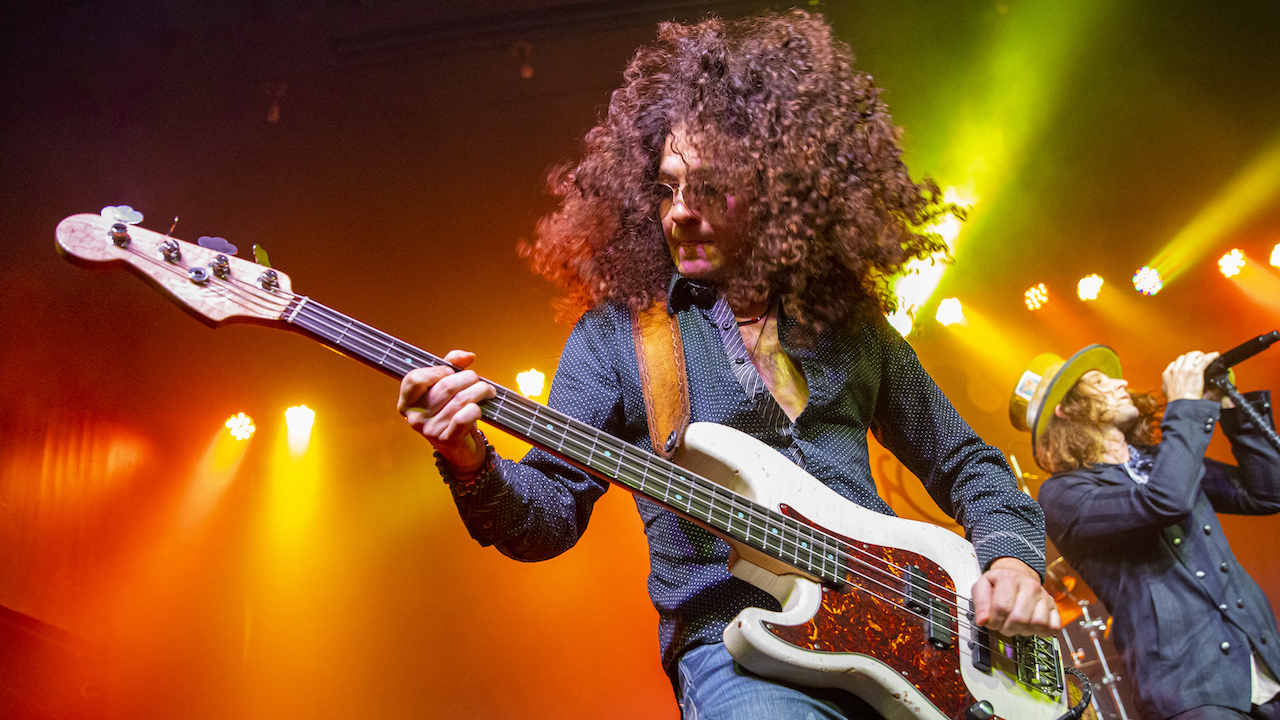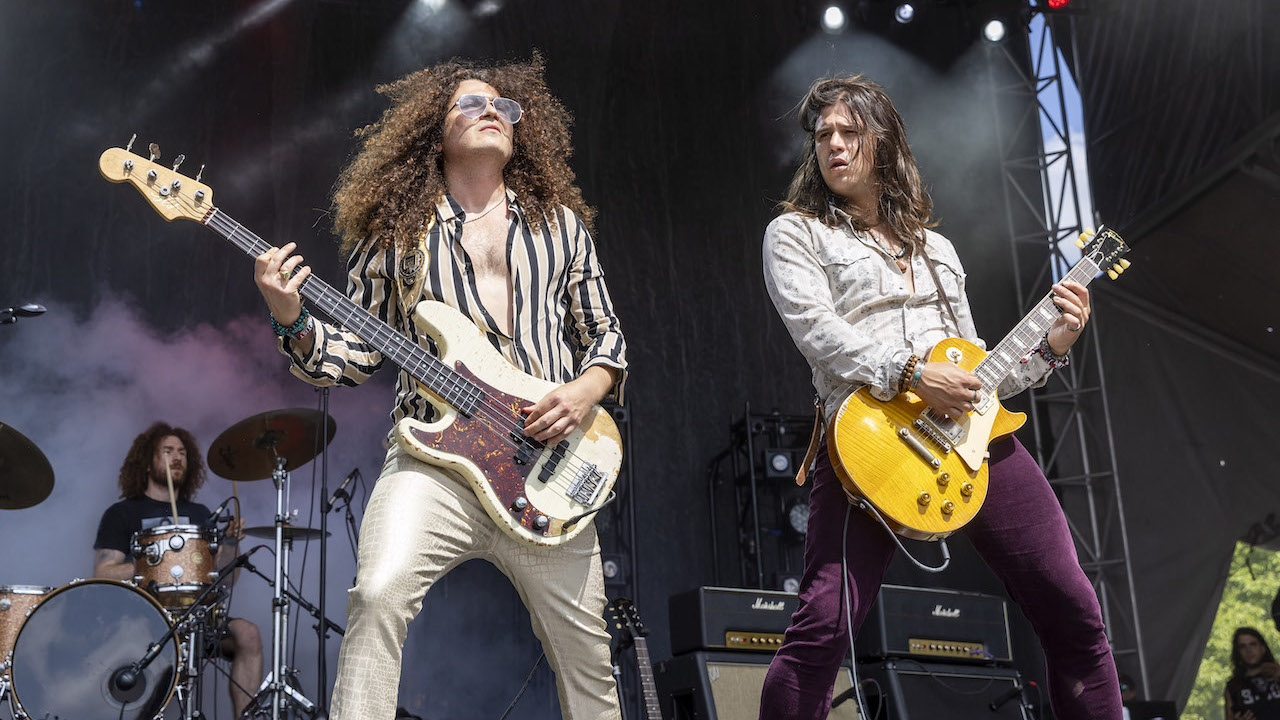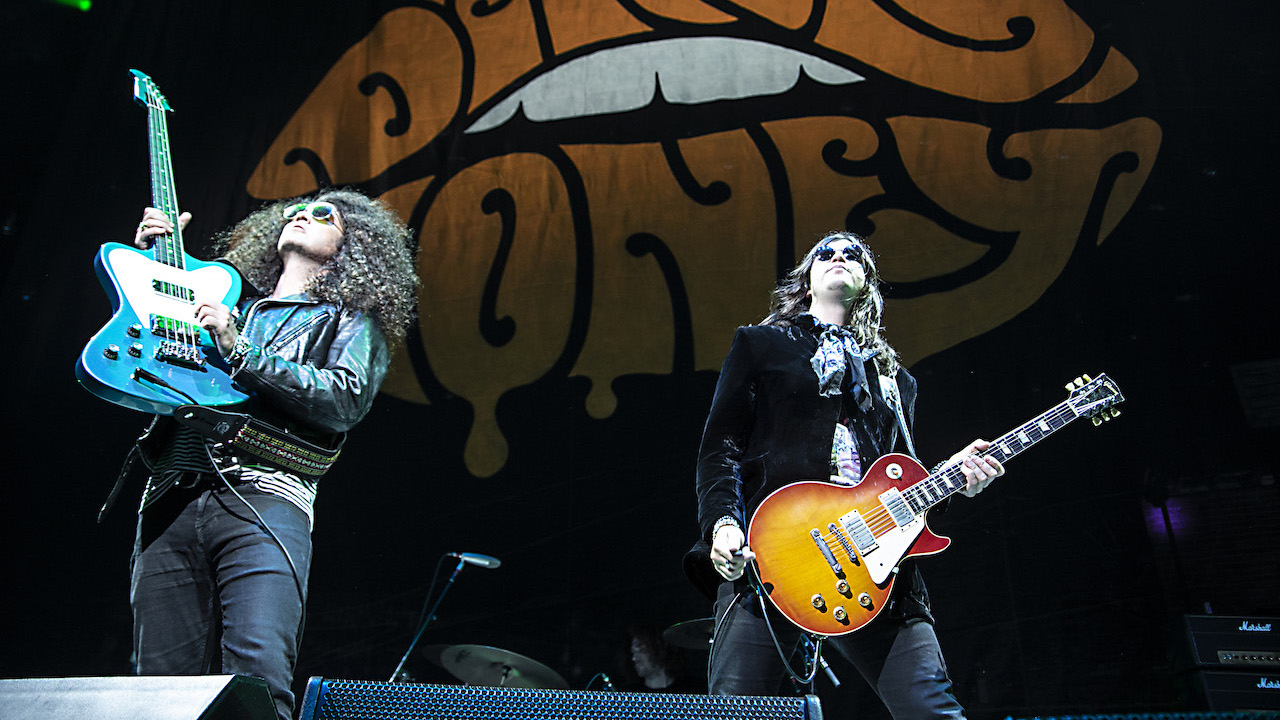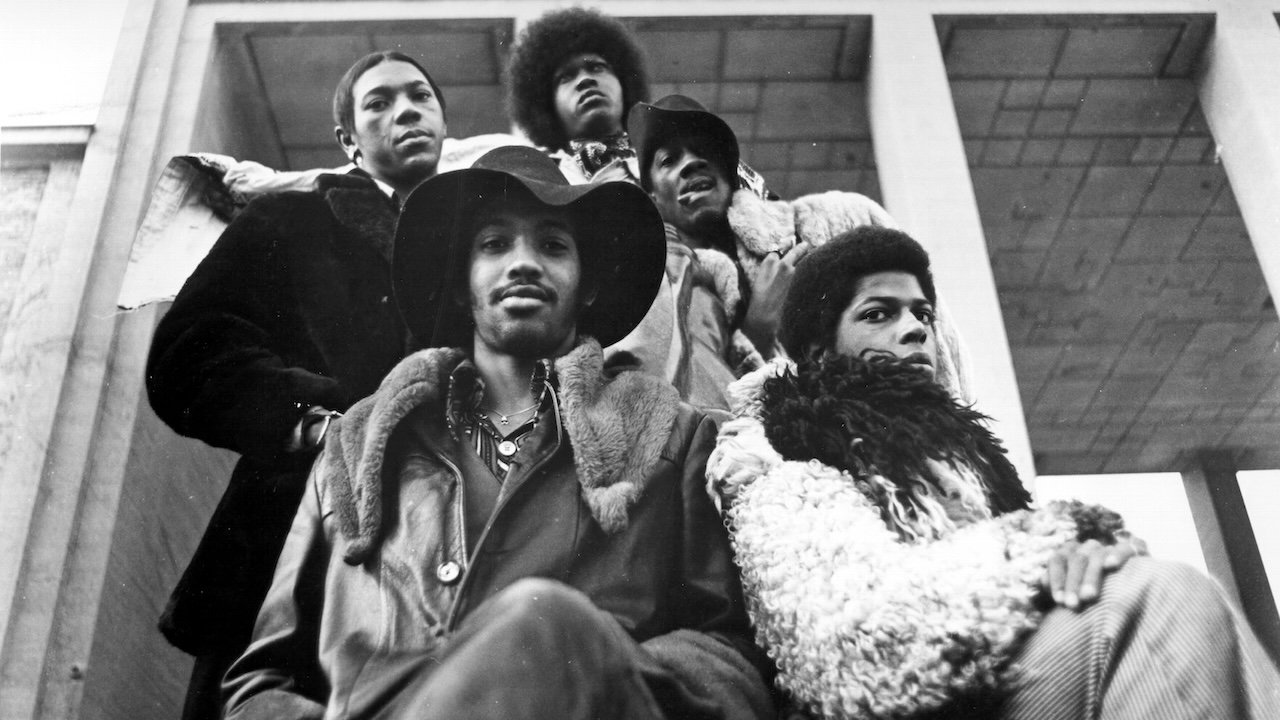“I remember thinking, ‘What would Paul McCartney do?’” How Justin Smolian channeled his inner Beatle with Dirty Honey
Dirty Honey's Justin Smolian opens up on touring with Guns N' Roses, and why Paul McCartney is still a bass playing genius

All the latest guitar news, interviews, lessons, reviews, deals and more, direct to your inbox!
You are now subscribed
Your newsletter sign-up was successful
For Justin Smolian, Paul McCartney is nothing short of a bass playing genius. “It's the later stuff that really gets me,” he says. “The bass guitar on Abbey Road is just amazing. In fact, there’s a track on the new Dirty Honey record where I remember thinking, ‘what would Paul McCartney do on this song?’”
Blending classic rock riffs with Marc LaBelle's searing vocals, Dirty Honey have established themselves as one of the most exciting bands of the past few years. In addition to making history as the only unsigned act to hit #1 on Billboard’s Mainstream Rock Chart, they’ve also opened for stadium rockers The Who, Kiss and Guns N’ Roses. “We played six stadium shows with Guns N’ Roses last summer," says Justin. “I've still not met Axl, but it was fucking insane.”
In support of their latest single and the final leg of their European headline tour, Justin checked in with Bass Player to discuss the upcoming album.
When did you start playing bass, Justin?
“I grew up in Van Nuys, so I got the music bug early on. I was going to shows at the Roxy when I was 14! I started on acoustic guitar, but a friend left my guitar out in the rain and it got wrecked. I remember my Dad saying I should play bass guitar because I’d always have a gig. He got me a bass and I was hooked.”
How long was it before you were up and running as a working bass player?
“Being in LA I got pretty lucky. I was out playing pop gigs and recording sessions by the time I was 18. I started making money and I didn't have to get a real job, but I realized after a couple years that I didn't want to be a sideman. It paid my bills, but I didn’t enjoy playing other people's music. I wanted to write my own songs and play in a rock band.”
All the latest guitar news, interviews, lessons, reviews, deals and more, direct to your inbox!
Has your background on guitar helped you as a bass player?
“I’ve always played both instruments. I played bass in my high school jazz band, but I'm left-handed and when I got to college I couldn't get a left-handed upright, so I ended up studying classical guitar instead. On this past tour everybody takes a solo during the set, and my solo would incorporate some of those classical guitar techniques. I have a pretty broad background, but I always come back to the bass because that's where my heart is at. I feel like I finally ended up where I was supposed to be the whole time.”
Who inspires you as a bass player?
“I think Paul McCartney’s a bass playing genius, but John Paul Jones is pretty high up the list as far as rock guys go. I was big Chili Peppers fan at high school, so I’d have to say Flea as well, but some of the first basslines I ever learned were Come As You Are and Love Buzz by Nirvana. Krist Novoselic rocks.”
What would be your favorite bassline?
“Honestly, the best basslines I’ve ever heard have probably come from Stevie Wonder's left hand! If you go through Stevie Wonder's catalog, you can learn everything you ever needed to know about playing bass from those records.”
Tell us about your songwriting in Dirty Honey?
“A lot of the songs on the new record we wrote together, but sometimes John will come in with a guitar riff or I'll come in with a bass riff. There's one song that Marc came in with on acoustic guitar and then we arranged it together as a band. Sometimes I might write something on guitar. There’s actually an acoustic tune on this record that I wrote and played guitar on. I played bass on it as well, of course, and then John played some slide guitar.”

What can you tell us about the new album?
The first single is called Won’t Take Me Alive, and that one just rips. I have some cool little bass moments on that track as well. The very last track is called Rebel Sun, which we'd actually written it for the last record, but we didn't like how it came out back then. I think it was Marc who had the idea of cutting in the middle and going into a jam, which is kind of like what the Stones did on Can’t You Hear Me Knocking. We ended up recording it in one take, and I’d say it's some of the best bass playing I've ever done. It’s just us listening and reacting on the spot.”
How would you describe your bass style?
“I don't think I'm the best bass player in the world, but I've worked hard at developing my own voice on the instrument. I might be one of the better rock guys out there, but I'm not going to pretend I can play bass like Hadrian Feraud.”
What gear do you use?
“My main bass is a custom 4-string made by a guy called Seth Lee Jones. I’m left-handed, and trying to find a good left-handed instrument drives me insane! I would love to get more into the vintage market, but it's so hard to find anything for left-handed players. In the end I asked Seth to build me something. He aged it too. He got the body wood from a hundred year old barn, which really opened up the sound. It sounds amazing.”
What pickups do you use?
“I like to use more modern pickups because I play with a lot of effects and overdrive, and I just find that modern pickups can handle the overdrive better. That's also why I split my signal whenever I play. I have like a clean channel and I have an overdrive channel. The overdrive channel goes to an Aguilar AG 700 and I put the clean channel through an old Ampeg B-15.”

Do you have any new effects in the studio or on stage?
“The Darkglass is a new addition. I was using an Xotic bb preamp before that, which is also really great, but the Darkglass has a little bit more brightness and a little bit more crunch on the top end. I still have my Akai Deep Impact. I need more practice with it, but it's the shit! I have an MXR Sub Machine, which is a fuzz, but it's got an octave down and an octave up as well. If you run the octave down into the overdrive you get this really cool sweep, which I used on Won’t Take Me Alive. I actually stole that idea from a video on ScottsBassLessons. I also love the Strymon Mobius for chorus.”
How did you end up opening for Guns N' Roses?
“Slash was the first person to ever take us out on the road. He took us out with Myles Kennedy and his band before we even had a record out. Then we opened up for Guns N' Roses for the first time in 2019 at Caesar's Palace in Vegas. It was weird because the capacity of the crowd was like 5,000 people, which is small for them. Last summer we played stadium shows with them in Europe and that was fucking insane. They're my favorite band, so it’s been like a dream come true.”

You became the first independent rock band to have a #1 single on Billboard. Will you ever sign with a label?
“Why would we ever sign with a label? It's really great having creative control and choosing exactly what you want to do. We're also really lucky in that we have Mark DiDia, who is an amazing manager. He was Rick Rubin's number two and has he's worked with David Geffen, so he really knows the business, which is why we've kind of built our own record label.”
Are there any limitations?
“We don't have a big chequebook behind it, so it definitely has its limitations. We finance everything ourselves, so we can't just sit at Capitol Records for two months and make an album, but it feels good to have got this far on our own.”
Dirty Honey’s upcoming sophomore album, Can’t Find the Brakes, is due out this fall. For more info visit dirtyhoney.com.

Nick Wells was the Editor of Bass Guitar magazine from 2009 to 2011, before making strides into the world of Artist Relations with Sheldon Dingwall and Dingwall Guitars. He's also the producer of bass-centric documentaries, Walking the Changes and Beneath the Bassline, as well as Production Manager and Artist Liaison for ScottsBassLessons. In his free time, you'll find him jumping around his bedroom to Kool & The Gang while hammering the life out of his P-Bass.
